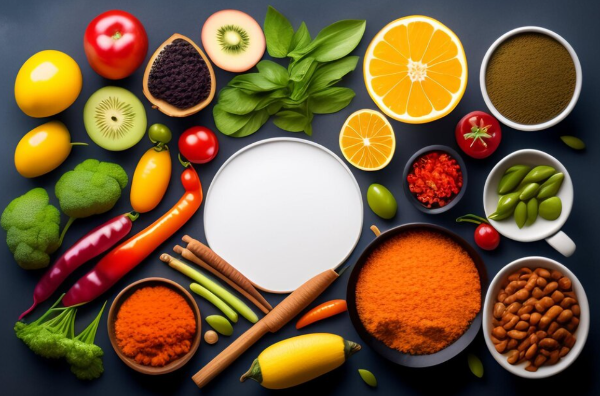Introduction to Spironolactone and its uses
Spironolactone is a diuretic medication primarily used to treat conditions such as high blood pressure, fluid retention, and certain hormonal imbalances.
It works by blocking the effects of aldosterone, a hormone that regulates the body’s salt and water balance. By doing so, Spironolactone can help reduce fluid buildup, lower blood pressure, and address other related health concerns.
Understanding the importance of diet while on Spironolactone
While Spironolactone is an effective medication, it’s crucial to pay attention to your dietary choices when taking it. Certain foods and beverages can interact with the medication, affecting its absorption and effectiveness, or potentially leading to adverse side effects.
Avoid potassium rich foods bananas, oranges, salt substitutes, and alcohol while taking spironolactone to prevent hyperkalemia and other complications.
By being mindful of your diet, you can ensure that Spironolactone works optimally and support your overall health during the treatment process.
Foods to avoid while taking Spironolactone
To maximize the benefits of Spironolactone and minimize potential complications, it’s essential to be aware of the foods and beverages you should steer clear of. Let’s explore the key categories to consider:
High-potassium foods to avoid
Spironolactone can cause an increase in potassium levels in the body, which can lead to potentially dangerous complications. As such, it’s crucial to limit or avoid the following high-potassium foods:
- Bananas
- Avocados
- Dried fruits (such as apricots, prunes, and raisins)
- Tomatoes and tomato products
- Potatoes and sweet potatoes
- Spinach and other leafy greens
- Nuts and seeds
- Legumes (such as beans, lentils, and peas)
- Dairy products (especially milk, yogurt, and cheese)
- Salt substitutes containing potassium
Sodium-rich foods to limit or avoid
While Spironolactone can help reduce fluid retention, it’s important to be mindful of your sodium intake as well. Excessive sodium can counteract the medication’s effects and potentially lead to further complications. Foods and beverages to limit or avoid include:
- Processed and canned foods (such as soups, sauces, and snacks)
- Fast food and restaurant meals
- Deli meats and cured meats
- Pickles and olives
- Soy sauce and other high-sodium condiments
- Salted nuts and seeds
- Carbonated beverages and sports drinks
Foods and beverages that can interfere with Spironolactone absorption
Certain foods and beverages can also interfere with the absorption of Spironolactone, reducing its effectiveness. It’s best to avoid the following:
- Grapefruit and grapefruit juice
- Licorice root
- St. John’s Wort
- Certain antibiotics (such as rifampin and erythromycin)
Tips for maintaining a healthy diet while on Spironolactone
To ensure optimal health while taking Spironolactone, consider the following dietary tips:
- Focus on whole, unprocessed foods: Choose a variety of fresh fruits, vegetables, whole grains, lean proteins, and healthy fats.
- Limit your intake of high-potassium and sodium-rich foods: Be mindful of the portions and frequency of these items in your diet.
- Increase your intake of low-potassium foods: Examples include berries, citrus fruits, broccoli, cauliflower, and white rice.
- Stay hydrated: Drink plenty of water throughout the day to support your body’s fluid balance.
- Consult with a registered dietitian or your healthcare provider: They can provide personalized guidance on creating a nutritious meal plan that aligns with your Spironolactone treatment.
Recommended foods to incorporate into your diet while on Spironolactone
To complement your Spironolactone treatment, consider incorporating the following nutrient-dense foods into your diet:
- Lean proteins (such as chicken, turkey, fish, and legumes)
- Whole grains (such as quinoa, brown rice, and whole wheat bread)
- Low-potassium fruits (such as berries, citrus fruits, and apples)
- Non-starchy vegetables (such as broccoli, cauliflower, and leafy greens)
- Healthy fats (such as avocado, olive oil, and nuts)
Consulting with a healthcare professional for personalized dietary guidance
While this article provides general guidelines, it’s essential to consult with your healthcare provider or a registered dietitian to develop a personalized dietary plan that considers your specific health conditions, medication requirements, and individual needs.
They can help you navigate the complexities of managing your diet while on Spironolactone, ensuring that you achieve optimal health and well-being.
Conclusion
By understanding the dietary considerations for individuals taking Spironolactone, you can take an active role in your health and well-being.
By avoiding high-potassium and sodium-rich foods, limiting potential interactions, and incorporating nutrient-dense options into your diet, you can support the effectiveness of your Spironolactone treatment and maintain overall optimal health.
Remember to consult with your healthcare provider for personalized guidance to ensure a seamless and successful journey on Spironolactone.
If you’re currently taking Spironolactone or considering it, I encourage you to schedule a consultation with your healthcare provider or a registered dietitian.
They can provide personalized guidance on creating a diet plan that supports your medication and overall health goals. Don’t hesitate to take this important step towards optimizing your well-being.

